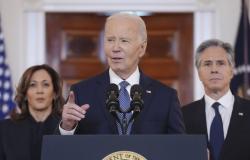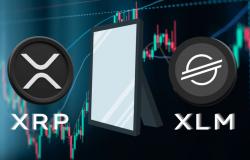The Nigerian stock market’s performance in 2024 nearly outpaced the country’s food inflation from the previous year, posting nominal returns of 37% despite a challenging economic environment.
Investors such as Aliko Dangote, Tony Elumelu, Abdulsamad Rabiu, and Femi Otedola made N33 trillion over a two-year period in the Nigerian stock market.
The Nigerian Stock Exchange (NGX) is a key investment hub for Nigeria’s billionaires, who own sizeable stakes in various businesses, including those in the energy, financial, and agro-supply sectors. Aliko Dangote, Africa’s richest man, holds significant shares in numerous blue-chip companies, including those he founded.
Other business tycoons, such as Jim Ovia, Fola Adeola, and Atedo Peterside, have also made notable investments in the Nigerian banking industry, both directly and through family offices or holding companies.
Investing in Nigeria’s Financial Market
Nigeria’s most popular financial market offers numerous opportunities for astute investors. The NGX presents a strategic avenue for building wealth but requires skill and patience.
For beginners, it’s essential to start with money they can afford to lose. The Nigerian banking industry is the most liquid sector on the NGX, making it easy to buy and sell stocks at reasonable prices.
Prospective investors should always conduct due diligence, understand the regulatory landscape, and seek guidance from SEC-approved financial firms.
Choosing a Stockbroker
When selecting a stock brokerage firm, consider the following factors: accessibility, affordability (some brokers require a minimum deposit to open an account), integrity, reputation, and their status with the Securities and Exchange Commission (SEC).
Many SEC-regulated stock brokers offer online trading platforms, eliminating the need for in-person visits. Investors can access all necessary information via the broker’s app or portal.
Opening an Investment Account
To interact with the NGX, you will need a stock investment account. These accounts are associated with individual investors and are issued exclusively to them.
Regulated stockbrokers require proof of address (such as a recent utility bill), a passport photo of the investor and their signatories, and a form of identification (e.g., international passport, driver’s license, or permanent voter card) to open an account with the Central Securities Clearing System (CSCS).
The Importance of Patience and Long-Term Planning
Stock market investing requires patience, long-term planning, and a deep understanding of the NGX market cycle. Investors should stay informed about any political or economic changes in Nigeria that could impact the market, as profitability is never guaranteed.
Understanding the Market Cycle
Understanding the market cycle is critical for becoming a successful investor. Long-term success in the stock market relies on both analytical and emotional intelligence. One core principle of investing is diversification.
The All-Share Index (ASI) is one key metric, representing all Nigerian stocks listed on the NGX and tracking their daily performance. The Nigerian bourse also has sub-indices for sectors such as consumer goods, banking, insurance, and oil & gas.
Additionally, the NSE 30, Nigeria’s equivalent of the Dow, includes companies like Dangote Cement, Telcos, and Nigerian banks. It monitors the performance of the exchange’s top 30 most valuable stocks.
Diversification and Sector Focus
Diversifying your investments across different industries and companies can reduce risk. The financial, energy, and agricultural sectors tend to be the most active, but telecom firms may see increased liquidity this year due to an impending tariff hike.
Large-cap stocks, such as blue-chip and Nigerian bank stocks, are very liquid, making them easy to buy and sell. However, small-cap and mid-cap stocks may offer greater growth potential at a higher risk. To stay informed, read financial books and news sources like Bloomberg and Nairametrics.
Your investment strategies should also incorporate risk mitigation techniques, such as negative balance protection.
Best Times to Buy Stocks in Nigeria
The best time to buy stocks in Nigeria is generally between mid-afternoon and 2:30 PM during an active trading session. Contrary to the common misconception that stocks are best purchased during regular exchange hours, stocks are more efficient and liquid during these periods.
The Role of Supply and Demand
The forces of supply and demand primarily drive the stock market. During times of high supply, purchasing power typically declines. Therefore, when demand for stocks is high, it’s an opportune time to purchase.
Opportunities from IPOs and New Listings
Investors should also keep an eye on initial public offerings (IPOs) or new listings. These may provide an opportunity to invest in rapidly growing companies, especially if there is significant local or international interest. For example, Dangote Refinery is expected to be listed on both the NGX and the UK stock market this year.
Investing Is a Learning Process
Investing in Nigerian stocks is not a precise science. To improve, continuously educate yourself about the market and invest time in personal research.
The Importance of Stock Market Investing
Investing is key to growing wealth and protecting against high inflation and the devaluation of the naira. Over time, inflation has diminished the naira’s purchasing power, underscoring the importance of making informed investment decisions.











